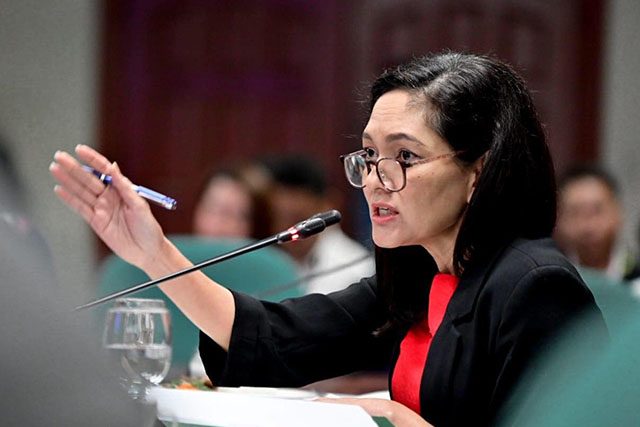
Sen. Risa Hontiveros recommended the work from home option anew amid the surge of confirmed cases of novel coronavirus this March.
As of March 10, the total number of confirmed COVID-19 cases in the country is now 24.
President Rodrigo Duterte also ordered the suspension of all classes at all levels in Metro Manila from March 10 to 14 on Monday evening.
But prior to Duterte’s move to cancel classes in the National Capital Region, Hontiveros already raised the need for employers to consider workers’ vulnerability to COVID-19.
“Classes are getting suspended, but workers are vulnerable, too. Kailangan may work from home option ang mga manggagawa,” she said.
“Kung hindi naman kailangang mag-commute ang empleyado araw-araw, mas mapapangalagaan ang kalusugan nila kapag puwedeng magtrabaho sa bahay,” she added.
Classes are getting suspended, but workers are vulnerable, too. Kailangan may WORK FROM HOME option ang mga manggagawa.
Kung hindi naman kailangang mag-commute ang empleyado araw-araw, mas mapapangalagaan ang kalusugan nila kapag puwedeng magtrabaho sa bahay. #COVID2019 https://t.co/XnpuUoY28R
— risa hontiveros (@risahontiveros) March 9, 2020
The senator also re-shared on her social media accounts previous reports of her making this suggestion last February when there was a coronavirus scare on social media.
In her previous statement, Hontiveros noted that employees would be able to take care of themselves better if they stay at home and work at the same time.
“Kung hindi naman kailangang mag-commute ang empleyado araw-araw, mas mapapangalagaan ang kalusugan nila kapag puwedeng magtrabaho sa bahay,” she said.
Meanwhile, employees whose nature of work requires their presence outside should receive protective equipment.
“Dapat may access sa running water, sabon, alcohol, at hand sanitizer ang mga empleyado sa loob ng pagawaan, lalung-lalo na sa mga empleyadong nasa frontline at nasa maraming tao. Kailangang i-provide ng kompanya ang mga mahahalagang gamit kagaya ng mask at alcohol,” she said.
Duterte, however, turned down such proposal, at least for government employees, during his press conference late Monday.
“You know, government has to function. We need all, at least now, we need all,” Duterte said.
It was a different tone from Presidential Spokesperson Salvador Panelo, who said that the work-from-home arrangement can be considered.
“Well, everything that will help contain the virus, government will certainly adopt. Everything is possible; everything that will successfully restrain the spread of this virus to the communities,” Panelo said.
The class suspensions were made as part of the World Health Organization’s advice to maintain social distancing to prevent further transmissions.
“When someone coughs or sneezes they spray small liquid droplets from their nose or mouth which may contain virus. If you are too close, you can breathe in the droplets, including the COVID-19 virus if the person coughing has the disease,” WHO explained on its website.
Recalling the Telecommuting Act
Deputy Speaker and Rep. Luis Raymond Villafuerte (2nd District, Camarines Sur) suggested employers and company heads to use the Republic Act 11165 or the Telecommuting Act, which he authored, to keep their workers safe from acquiring the new pathogen.
Duterte signed this measure last year to ease the traffic congestion in Metro Manila.
Telecommuting is defined in the new law as “work arrangement that allows an employee in the private sector to work from an alternative workplace with the use of telecommunication and/or computer technologies.”
Section 3 of its implementing rules and regulations states that the telecommuting program will be provided on a voluntary basis or as a result of “collective bargaining.”
“Provided, that such terms and conditions shall not be less than the minimum labor standards set by law, and shall include compensable work hours, minimum number of work hours, overtime, rest days, entitlement to leave benefits, social welfare benefits, and security of tenure.”
The IRR, which the Department of the Labor and Employment released, also includes provisions on fair treatment and data protection between the employee and employer.
For monitoring purposes, the employer will be required to notify DOLE on the adoption of the program in their company’s operations.









